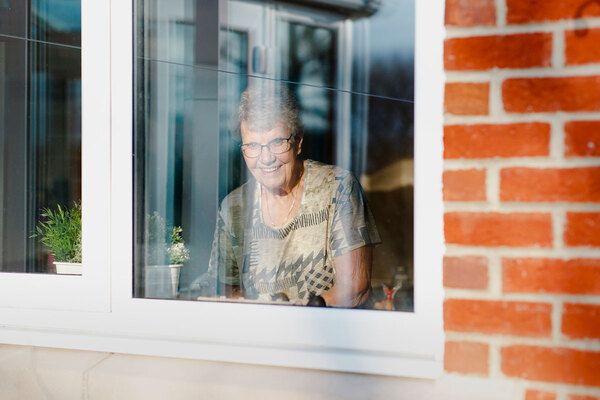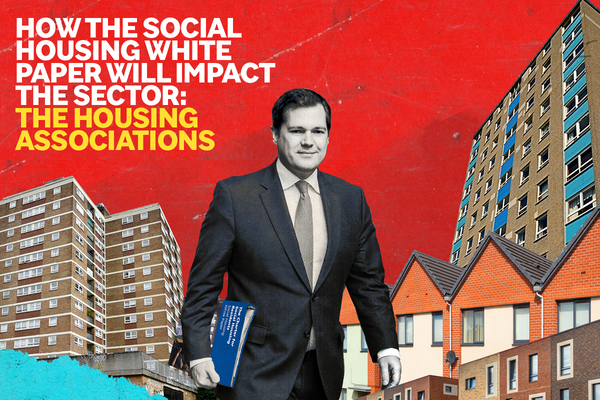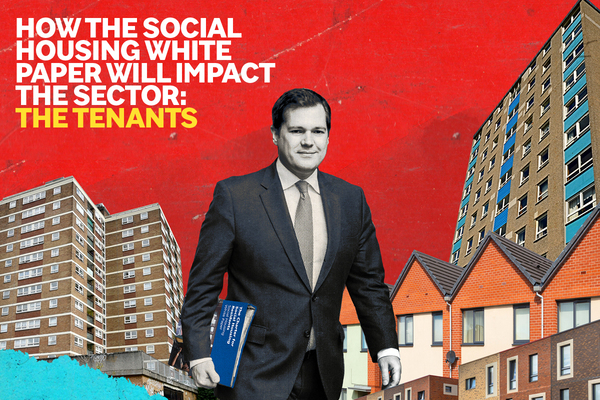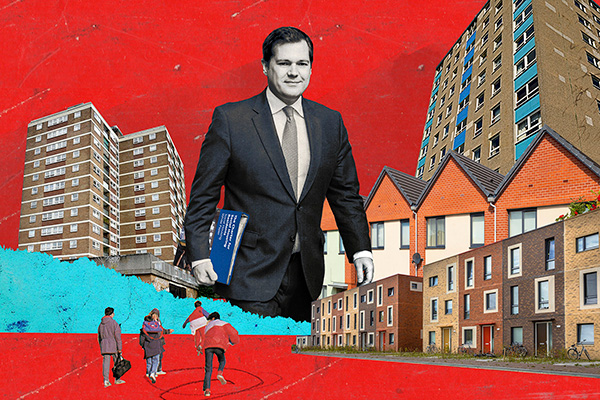You are viewing 1 of your 1 free articles

James Prestwich is the Director of Policy and External Affairs at the Chartered Institute of Housing. He joined CIH in early 2020 from ...more
The Social Housing White Paper is an important realignment of the landlord/tenant relationship
Steps forward on protecting consumer standards through regulation are welcome but the white paper falls short of making a clear statement about who and what social housing is for, writes James Prestwich
At the Chartered Institute of Housing (CIH) we’re glad the white paper has finally arrived. It’s been in gestation for some time, but now it’s here, it’s good to see residents at the heart of it. Can anyone argue with that?
The white paper is an important realignment of the landlord/tenant relationship.
A key focus is on tenant safety, which should always be the primary concern of any landlord; and we all need to be on the front foot after the tragedy at Grenfell Tower and other more recent incidents.
It’s also great to see that the focus on professionalism, a clear theme in the green paper, remains. Words like respect, dignity and empathy appear throughout. To drive culture change, we need to focus on the knowledge skills and behaviours of our staff.
There is a clear role here for the CIH as the professional body, and the work we are doing to develop a professionalism standards framework will make a big difference.
To a large extent the white paper does what it says on the tin: it’s principally a charter for tenants, and a broader white paper only in the small print. So, judging it as a charter, how does it stand up?
Quite rightly, this new charter puts safety first. Having a named person responsible for safety and giving tenants clearer routes to check the safety of their homes are sensible steps.
Enhanced, proactive consumer regulation is really positive – reversing the decision of the coalition government to move the regulatory focus away from this area.
The ‘serious detriment’ test placed an unnecessarily high bar for intervention; when a landlord was falling below customer service expectations.
While we don’t want to go back to an overly prescriptive regime, this is positive news for the many good landlords who have kept their focus on their customers – and even better news for tenants of the minority of landlords who haven’t.
Every landlord should already be building residents’ views into its business plans. Those – hopefully few – who still take a paternalistic view must now change their approach.
The shape of the new consumer regulation is crucial, however, and we welcome the commitment to engage extensively with landlords to develop a workable regime. We understand the government’s determination to press on with this quickly, but it’s even more important to get it right.
The regulator has a big task ahead to scale up to its enhanced role. At first glance the proposed tenant satisfaction measures look like they need some sharpening; we need to build on the experiences and perceptions of tenants to make sure the final measures adopted speak to the concerns of residents.
Working with the regulator to develop a set of metrics that are more outcome-focused and more relevant to actual experience would be a positive step.
Joining up the regulatory and ombudsman operations also makes sense and it’s vital that tenants are clear who they should go to with complaints.
A refreshed Decent Homes Standard is overdue and will also be welcomed by most landlords – even though standards in the social sector are generally better than those in the private rented sector, although it’s also important to recognise that social landlords have a strong track-record of investing in the wider community and environment in a way that the private sector doesn’t.
Judged as a broader white paper, it could be argued the government’s proposals fall some way short.
The nearest we get to a government view on who and what social housing is for is in the last chapter – with a clear emphasis on promoting homeownership. Given the growing number of households for which ownership remains a pipe dream, it is unclear whether government wants the sector to play a broad role or only act as a safety net for those in most need.
Many households don’t want a route out of social housing, they urgently need a route into it. We explored these issues in our report Rethinking Social Housing and we passionately believe that social housing has an important role as a tenure in its own right rather than an interim pathway to ownership.
This white paper also feels like a missed opportunity for government to acknowledge some of the key issues facing the sector and people living in or wanting to live in social housing.
For example, overcrowding is an increasing problem for tenants, in part-driven by existing benefits policies and under-investment.
There is no mention of long stays in temporary accommodation and nothing on lengthening waiting lists, with homelessness seen only in terms of barriers to accessing social housing, rather than shortage of supply.
The government is right to emphasise that delivering a good social housing service involves a partnership between landlords and tenants.
Raising the standard of social housing and meeting the aspirations of residents are aims we all share – and to do this successfully government must be partners, too. We stand ready to work with them and with residents, the regulator and the sector to make this a reality.
James Prestwich, head of policy, Chartered Institute of Housing
Sign up for our legal and regulation newsletter
Already have an account? Click here to manage your newsletters






